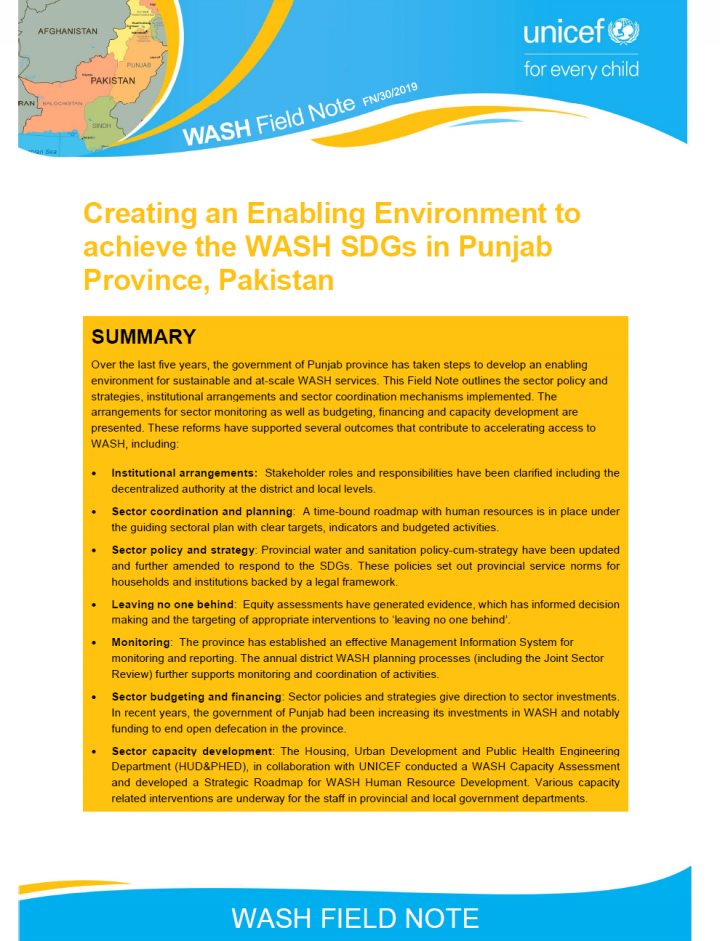Creating an Enabling Environment to achieve the WASH SDGs in Punjab Province, Pakistan
Ambreen S., Kugedera, Z., Mulugeta, T., Peiris, M., Lihemo, G., (2020)

Published in: 2020
Pages: 11
Publisher:
United Nations Children’s Fund, New York, USA
Author:
Ambreen S., Kugedera, Z., Mulugeta, T., Peiris, M., Lihemo, G.,
Uploaded by:
SuSanA Admin
Partner profile:
common upload
1332 Views
22 Downloads
Over the last five years, the government of Punjab province has taken steps to develop an enabling environment for sustainable and at-scale WASH services. This Field Note outlines the sector policy and strategies, institutional arrangements and sector coordination mechanisms implemented. The arrangements for sector monitoring as well as budgeting, financing and capacity development are presented. These reforms have supported several outcomes that contribute to accelerating access to WASH, including:
• Institutional arrangements: Stakeholder roles and responsibilities have been clarified including the decentralized authority at the district and local levels.
• Sector coordination and planning: A time-bound roadmap with human resources is in place under the guiding sectoral plan with clear targets, indicators and budgeted activities.
• Sector policy and strategy: Provincial water and sanitation policy-cum-strategy have been updated and further amended to respond to the SDGs. These policies set out provincial service norms for households and institutions backed by a legal framework.
• Leaving no one behind: Equity assessments have generated evidence, which has informed decision making and the targeting of appropriate interventions to ‘leaving no one behind’.
• Monitoring: The province has established an effective Management Information System for monitoring and reporting. The annual district WASH planning processes (including the Joint Sector Review) further supports monitoring and coordination of activities.
• Sector budgeting and financing: Sector policies and strategies give direction to sector investments. In recent years, the government of Punjab had been increasing its investments in WASH and notably funding to end open defecation in the province.
• Sector capacity development: The Housing, Urban Development and Public Health Engineering Department (HUD&PHED), in collaboration with UNICEF conducted a WASH Capacity Assessment and developed a Strategic Roadmap for WASH Human Resource Development. Various capacity related interventions are underway for the staff in provincial and local government departments.
Bibliographic information
Ambreen S., Kugedera, Z., Mulugeta, T., Peiris, M., Lihemo, G., (2020). Creating an Enabling Environment to achieve the WASH SDGs in Punjab Province, Pakistan. United Nations Children’s Fund, New York, USA
Filter tags
East Asia & Pacific English Politicians and local decision makers Practitioners















